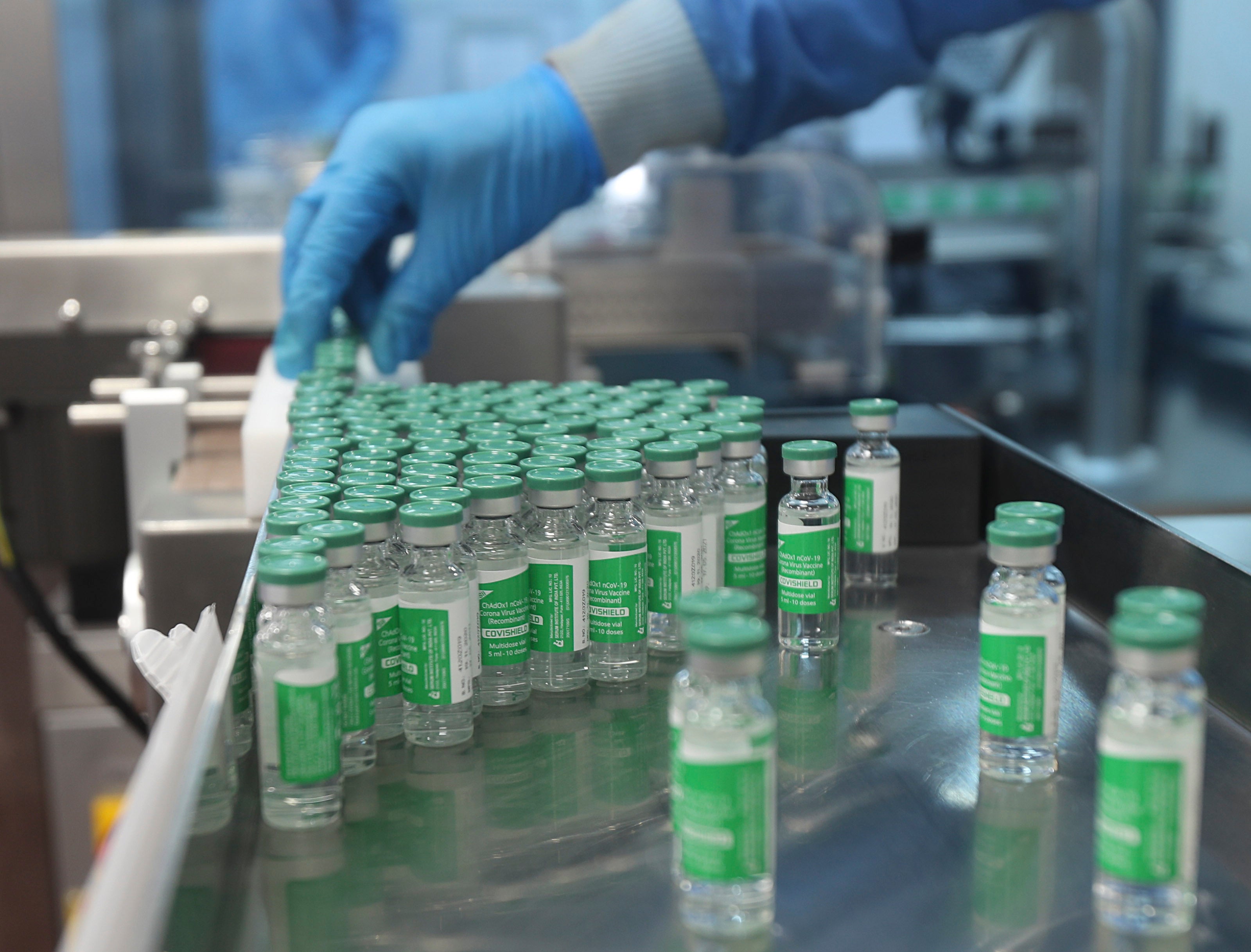Indian vaccine maker suggests exports won’t restart until ‘end of this year’
The company said it is continuing to scale up its production while prioritising India, raising concerns of Covax alliance

Your support helps us to tell the story
From reproductive rights to climate change to Big Tech, The Independent is on the ground when the story is developing. Whether it's investigating the financials of Elon Musk's pro-Trump PAC or producing our latest documentary, 'The A Word', which shines a light on the American women fighting for reproductive rights, we know how important it is to parse out the facts from the messaging.
At such a critical moment in US history, we need reporters on the ground. Your donation allows us to keep sending journalists to speak to both sides of the story.
The Independent is trusted by Americans across the entire political spectrum. And unlike many other quality news outlets, we choose not to lock Americans out of our reporting and analysis with paywalls. We believe quality journalism should be available to everyone, paid for by those who can afford it.
Your support makes all the difference.Serum Institute of India (SII), the country’s top vaccine manufacturer, has issued a clarification stating that the company is “prioritising” India’s demand for jabs and will supply the doses promised to other countries through the Covax alliance by “the end of this year.”
The statement comes at a time when there is a huge backlash in the country over exports by the Narendra Modi government and SII, as India now faces an acute shortage of vaccines amid a crippling second wave. However, the delays by SII in providing shipments to the Covax alliance are raising concerns of similar outbreaks elsewhere.
“We have been working with the government tirelessly to do our best for humanity and will continue in the same spirit. This is the time for all of us to unite and work together to defeat the pandemic,” said an SII statement.
“The SII has delivered more than 200 million doses though we received EUA [Emergency Use Authorisation] two months after the US pharma companies,” the statement further said. “If we look at total doses produced and delivered, we rank amongst the top three in the world.”
The company said it is continuing to scale up its production while prioritising India, however, on the front of expected deliveries to Covax, it said it hopes to “start delivering to Covax and other countries by the end of this year.”
As part of the deal with the Gavi-led Covax alliance, an international scheme to ensure equal access to Covid-19 vaccines, SII was due to supply around half of the two billion jabs of either the AstraZeneca or the Novavax vaccine to developing and underdeveloped countries.
However, the company has been unable to deliver any doses since March as it suspended its exports in order to meet the demand by the Indian government.
In a statement released Monday, UNICEF executive director Henrietta Fore said the Covax scheme has fallen far behind where it needed to be due to the situation in India and demanded rich countries to do more in order to fill the gap.
“Soaring domestic demand has meant that 140 million doses intended for distribution to low-and middle-income countries through the end of May cannot be accessed by Covax,” she wrote.
SII is the largest single provider for Covax which intends to provide jabs to poorer nations, some of which heavily rely on the alliance to fulfil their needs for vaccination.
On Monday, WHO chief Tedros Adhanom Ghebreyesus also asked SII to “get back on track and catch up” on its delivery commitments to Covax, after the outbreak in India recedes.
While the world awaits supplies from the Indian manufacturer, India’s own vaccination drive has failed to pick up momentum with several states flagging a shortage of doses. India has been able to administer 180 million vaccine doses since its inoculation drive started on 16 January and so far, it has been able to fully vaccinate a mere 3 per cent of its population, with just 10 per cent receiving their first dose.
The country devastating second wave began in March and caused a shortage of hospital beds, medical oxygen and medicines, and it continues to wreak havoc. On Tuesday, the country reported 263,533 new cases and 4,329 deaths, taking the total number of infections to over 25 million.
Join our commenting forum
Join thought-provoking conversations, follow other Independent readers and see their replies
Comments